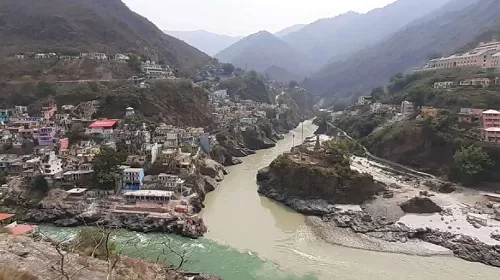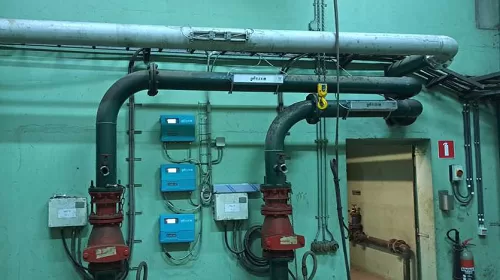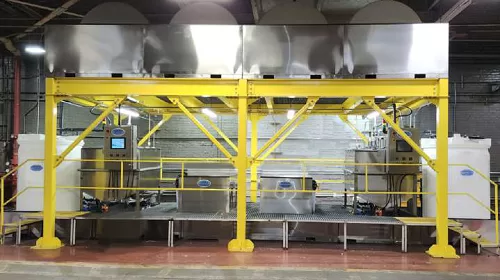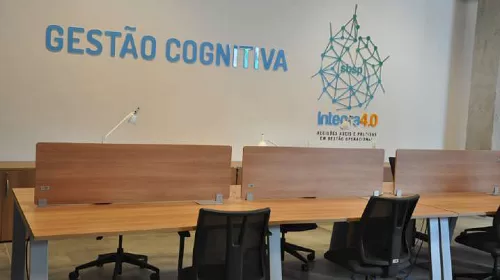INTRODUCTION
KISTERS AG, a global leader in environmental monitoring and IT solutions, has been at the forefront of tackling water quality challenges worldwide. In India, KISTERS and SGS Weather and Environment, collaborates with the Central Pollution Control Board (CPCB), which has appointed KISTERS as the data qualification service consultant for real-time water quality monitoring stations installed along the Holy Ganga River.
This partnership is a part of India’s broader efforts to rejuvenate its water resources, ensuring clean water for millions of people while supporting economic growth and ecological health. KISTERS and SGS Weather and Environment’s involvement in the initiative not only contributes to environmental sustainability but also highlights the power of advanced technology in solving real-world challenges.
THE IMPORTANCE OF WATER QUALITY MANAGEMENT IN INDIA
Water is a precious and essential resource for over 1.4 billion people in India. Yet, increasing urbanisation, industrialisation, and poor waste management have placed immense pressure on the country’s water resources. Rivers like the Ganga, Yamuna, and other water bodies are highly polluted, posing serious challenges for public health, agriculture, and industry.
The government of India, through the CPCB and various state agencies, has initiated large-scale water quality improvement projects to restore these crucial water resources. This includes a focus on reducing industrial waste, tackling untreated sewage, and managing agricultural runoff that heavily affects water quality.
In this context, the role of advanced technologies in monitoring and managing water quality becomes more important than ever. The adoption of reliable, real-time monitoring systems will ensure that action can be taken swiftly to mitigate pollution and improve water quality for the benefit of all. KISTERS’ technology helps make informed decisions, ensuring that water quality is improved sustainably and efficiently.
KISTERS’ ROLE IN ENHANCING WATER QUALITY MANAGEMENT IN INDIA
KISTERS is uniquely positioned to help India manage its water quality challenges. By deploying KISTERS’ WISKI software platform, India can access cutting-edge real-time data on water quality that is essential for decision-making. KISTERS’ solutions not only monitor but also validate and visualise data, ensuring that accurate, timely information is available to stakeholders at all levels. The company’s long track record of providing state-of-the-art technology, backed by expert support, has made it a trusted partner in many countries facing similar challenges.
The WISKI software integrates seamlessly with existing infrastructure, providing local authorities with a comprehensive tool for managing water quality across multiple regions, rivers, and water sources. KISTERS has demonstrated expertise in adapting its solutions to suit the diverse and complex needs of water quality management in India, from urban rivers to rural water bodies. This adaptability allows the software to work in a variety of environmental conditions, ensuring that the needs of both urban and rural water quality projects are met.
HOW KISTERS SUPPORTS INDIA’S WATER QUALITY INITIATIVES
KISTERS’ support goes beyond just providing software solutions; it is about partnership and collaboration with India’s government and industry stakeholders. KISTERS works alongside the CPCB to enhance its monitoring capabilities, ensuring that data is constantly updated, validated, and available for rapid action. This collaborative approach helps India’s regulatory bodies stay ahead of potential pollution threats, ensuring timely intervention and better management of its water resources.
PARTNERING FOR PROGRESS: KISTERS AND CPCB’S WATER QUALITY SUCCESS STORY
A significant innovation in the monitoring programme is the partnership with private operators to manage Real-Time Water Quality Monitoring Stations (RTWQMS). Here’s how WISKI drives efficiency and effectiveness
- Reliable Monitoring across Six States: KISTERS enables the CPCB to monitor water quality along the Ganga River and its tributaries across Uttarakhand, Haryana, Uttar Pradesh, Bihar, Jharkhand, and WestBengal. Real-time data from 40 RTWQMS ensures that trends—both annual and interannual— are established, providing actionable insights for sustainable water management.
- Pinpointing Problem Areas: WISKI empowers authorities to identify low-quality water locations with precision. This targeted approach ensures that appropriate interventions can be planned to mitigate pollution and safeguard public health.
- Focus on Strategic Action: The RTWQMS are operated by a private firm that is incentivised based on the quality and timeliness of the collected data. WISKI automates the calculation of payments for operators using pre-defined rules, thresholds, and timelines. This process allows the CPCB to dedicate its resources to decision-making and long-term strategies instead of data collection.
- Data Consistency and Accessibility: WISKI ensures that all data is managed and processed in a standardised manner. This increases consistency, enhances retrievability, and facilitates easier analysis by stakeholders. Furthermore, automated dissemination of data to both decision-makers and the public enhances transparency and situational awareness. KISTERS’ support goes beyond just providing software solutions; it is about partnership and collaboration with India’s government and industry stakeholders. KISTERS works alongside the CPCB to enhance its monitoring capabilities, ensuring that data is constantly updated, validated, and available for rapid action. This collaborative approach helps India’s regulatory bodies stay ahead of potential pollution threats, ensuring timely intervention and better management of its water resources.
- Increased Public Transparency: The collected data is automatically shared with decision-makers and published online, enhancing situational awareness and enabling informed public discourse on water quality issues.
KEY BENEFITS OF KISTERS’ SOLUTIONS
- Real-Time Monitoring for Timely Interventions: The WISKI platform tracks key water quality parameters, such as pH, turbidity, dissolved oxygen, and heavy metal content, helping detect issues early and trigger immediate action. This ability to detect pollution levels in real-time is crucial for preventing long-term damage to water bodies and ensuring public safety.
- Enhanced Public Health Outcomes: By improving water quality monitoring, KISTERS’ solutions contribute to reducing the incidence of waterborne diseases and alleviating the strain on India’s healthcare system. Cleaner water reduces the spread of diseases like cholera, dysentery, and diarrhoea, which are a significant concern in many parts of India.
- Sustainable Agricultural Practices: By ensuring the availability of clean water, KISTERS helps farmers optimise irrigation practices, improving crop yields and ensuring long-term sustainability for India’s agriculture. In a country where agriculture is the backbone of the economy, optimising water use is essential for sustaining food production and ensuring water security for rural communities.
- Boosting Economic Growth through Improved Water Quality: Cleaner water supports various industries, including manufacturing and tourism. Furthermore, better water quality attracts investment in regions where clean water is a critical factor for business success. In industrial sectors where water is used for manufacturing, quality water ensures that the production process is not compromised, leading to higher efficiency and reduced costs.
THE ECONOMIC AND ENVIRONMENTAL IMPACT OF KISTERS’ SOLUTIONS
Cleaner water directly contributes to economic benefits, especially in sectors like agriculture and tourism. KISTERS’ solutions can help India’s agricultural sector by improving irrigation practices, ensuring water is used efficiently, and reducing the costs associated with contaminated water. Agriculture accounts for a significant portion of India’s GDP, and ensuring its sustainability is vital for the country’s future. By optimising water use in agricultural practices, KISTERS helps ensure long-term food security and economic stability for millions of farmers across the country.
Similarly, cleaner rivers will enhance India’s tourism sector, especially religious tourism that depends heavily on the Holy Ganga and other rivers. Millions of tourists visit India annually to witness religious rituals, such as the famous Ganga Aarti, and these visits often revolve around water quality. Clean and safe water sources not only contribute to public health but also attract international tourists, thereby boosting the country’s economy.
Furthermore, KISTERS’ monitoring solutions help protect the environment by ensuring that pollution levels are controlled and water quality is continually improving. The real-time monitoring systems provide data that can be used for both short-term interventions and long-term strategies for the sustainable management of water resources. This long-term, data-driven approach is critical for ensuring sustainable development in India’s most vital regions.
KISTERS’ GLOBAL EXPERTISE, LOCAL COMMITMENT
With decades of experience in environmental management worldwide, KISTERS has been involved in numerous large-scale water quality management projects across Europe, North America, and now India. The company has a proven track record of successfully adapting its solutions to meet the unique needs of different regions, including India. The adaptability of KISTERS’ solutions is key to ensuring that they can be integrated into local regulatory frameworks and support local stakeholders in managing water quality more effectively.
KISTERS is committed to supporting India’s environmental goals and enhancing the effectiveness of the country’s water quality management. With a local presence and dedicated support, KISTERS provides the resources, expertise, and technology needed to address the pressing water challenges India faces. By offering bespoke solutions, KISTERS ensures that the needs of each client are met, regardless of the scale or complexity of the project.
THE ROLE OF KISTERS IN INDIA’S WATER QUALITY FUTURE
India’s water challenges are urgent and multi-faceted. From polluted rivers to groundwater depletion, the country faces an array of water management issues that require immediate attention. KISTERS understands the complexity of these issues and brings a wealth of experience and technological expertise to the table. Through its advanced water quality monitoring systems, KISTERS is playing an instrumental role in helping India combat its water crisis and achieve sustainable water management practices for future generations.
CONCLUSION
The collaboration between KISTERS and the Central Pollution Control Board in the water quality monitoring of the Holy Ganga River represents a powerful example of how technology and innovation can be leveraged to restore and preserve India’s most precious water resources. By deploying WISKI and other advanced monitoring systems, KISTERS is helping India make informed decisions, improve water quality, and achieve long-term sustainability.
KISTERS’ commitment to India’s water quality challenges, combined with its global expertise and local support, makes it a trusted partner for government agencies, industries, and environmental organisations looking to make a positive, lasting impact on water quality in India. By offering tailormade solutions and maintaining strong local partnerships, KISTERS is ready to support India’s ambitious water management goals.
This case study exemplifies the role of advanced technology and collaborative partnerships in tackling India’s water quality challenges, ensuring cleaner, safer water for millions, and promoting sustainable growth for generations to come.
By Dr. Frank Schlaeger, Head of Enterprise Solutions for the HydroMet Business Unit at KISTERS





